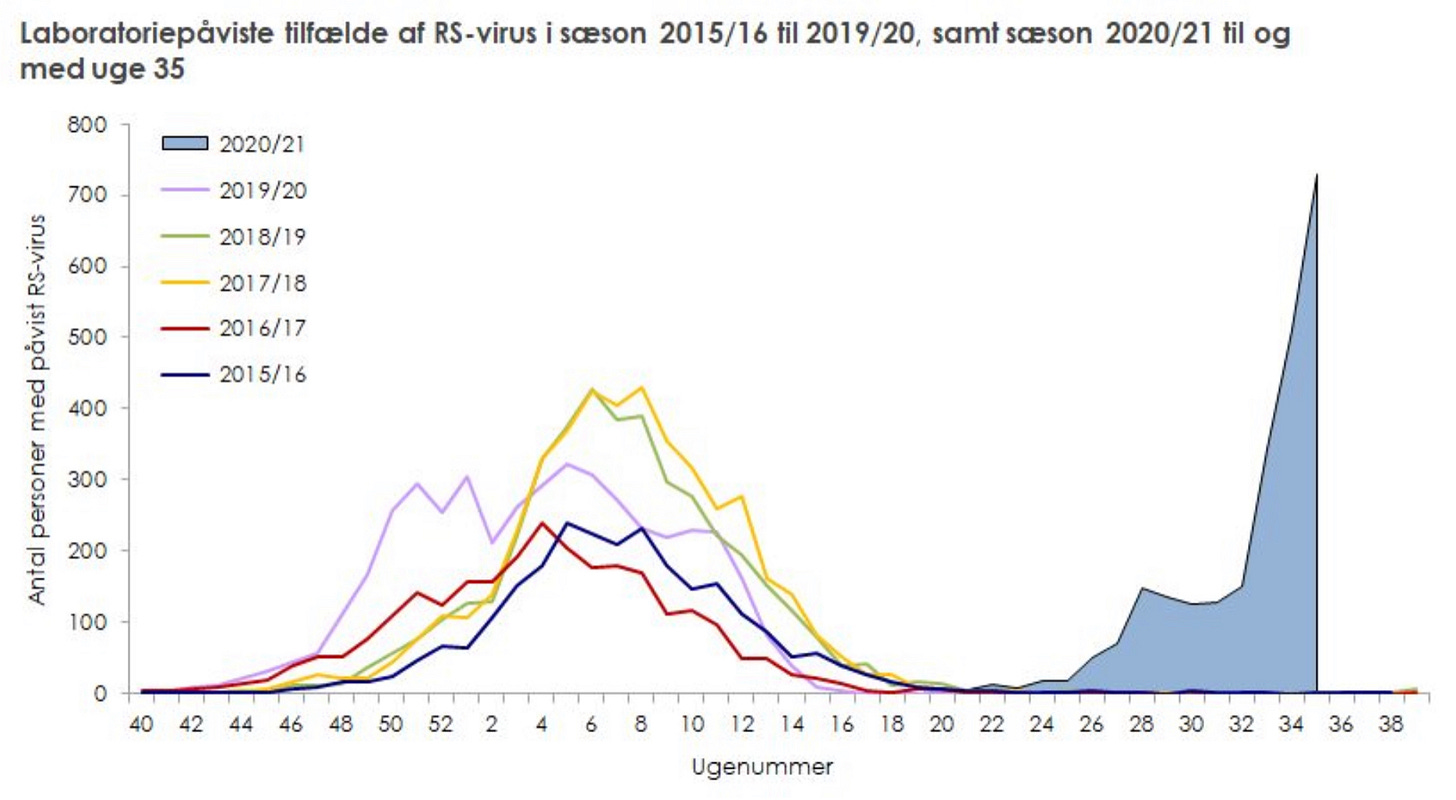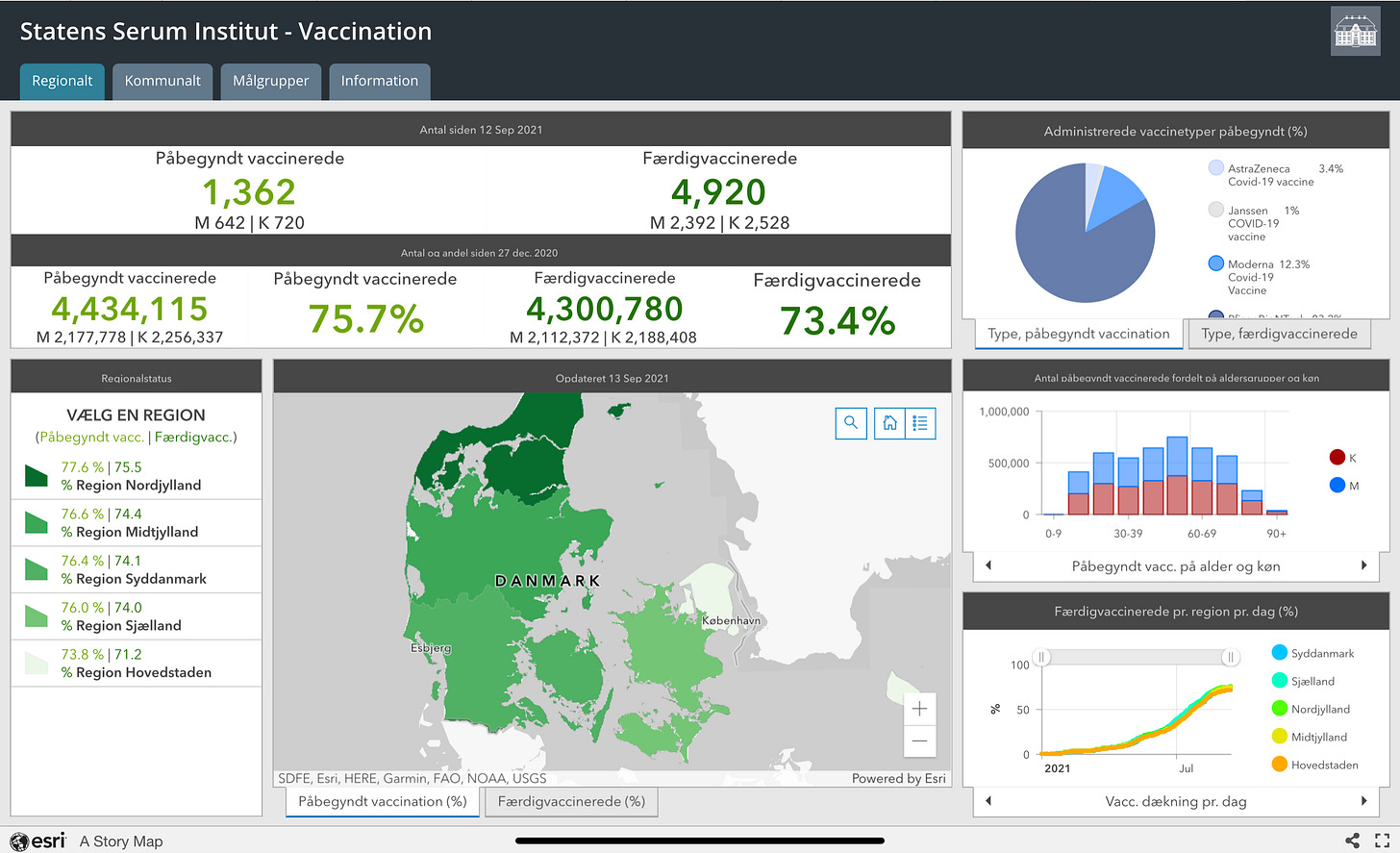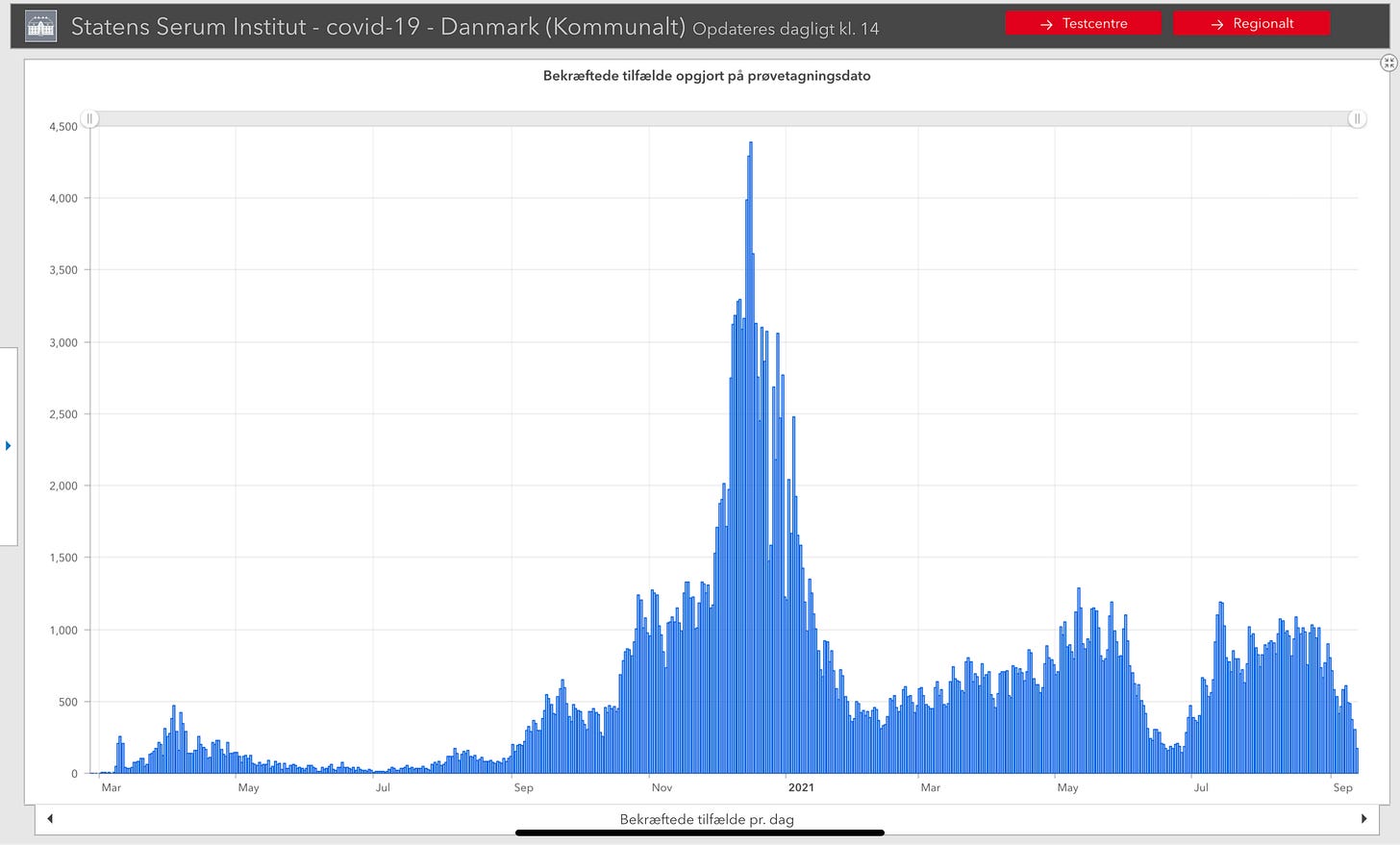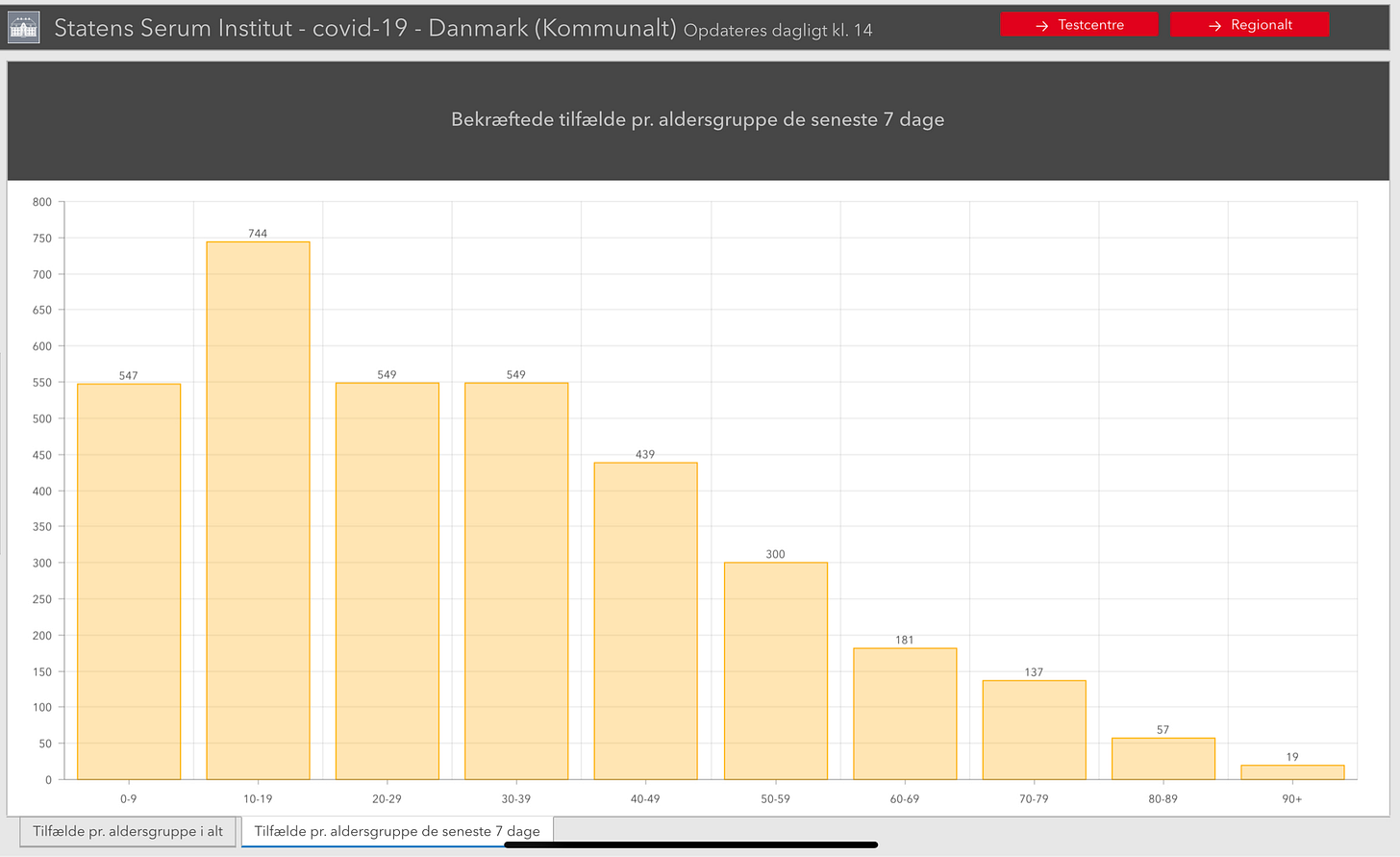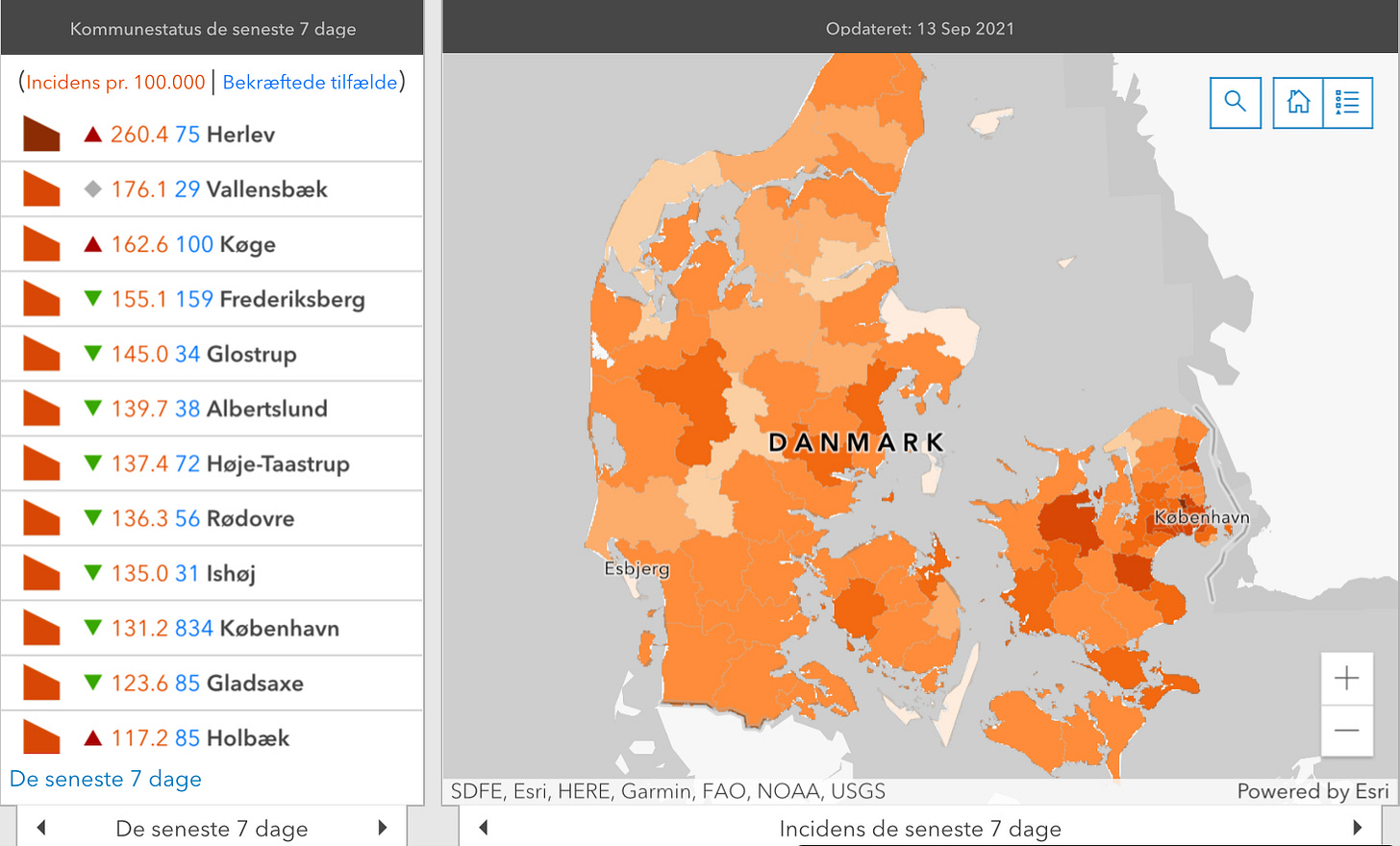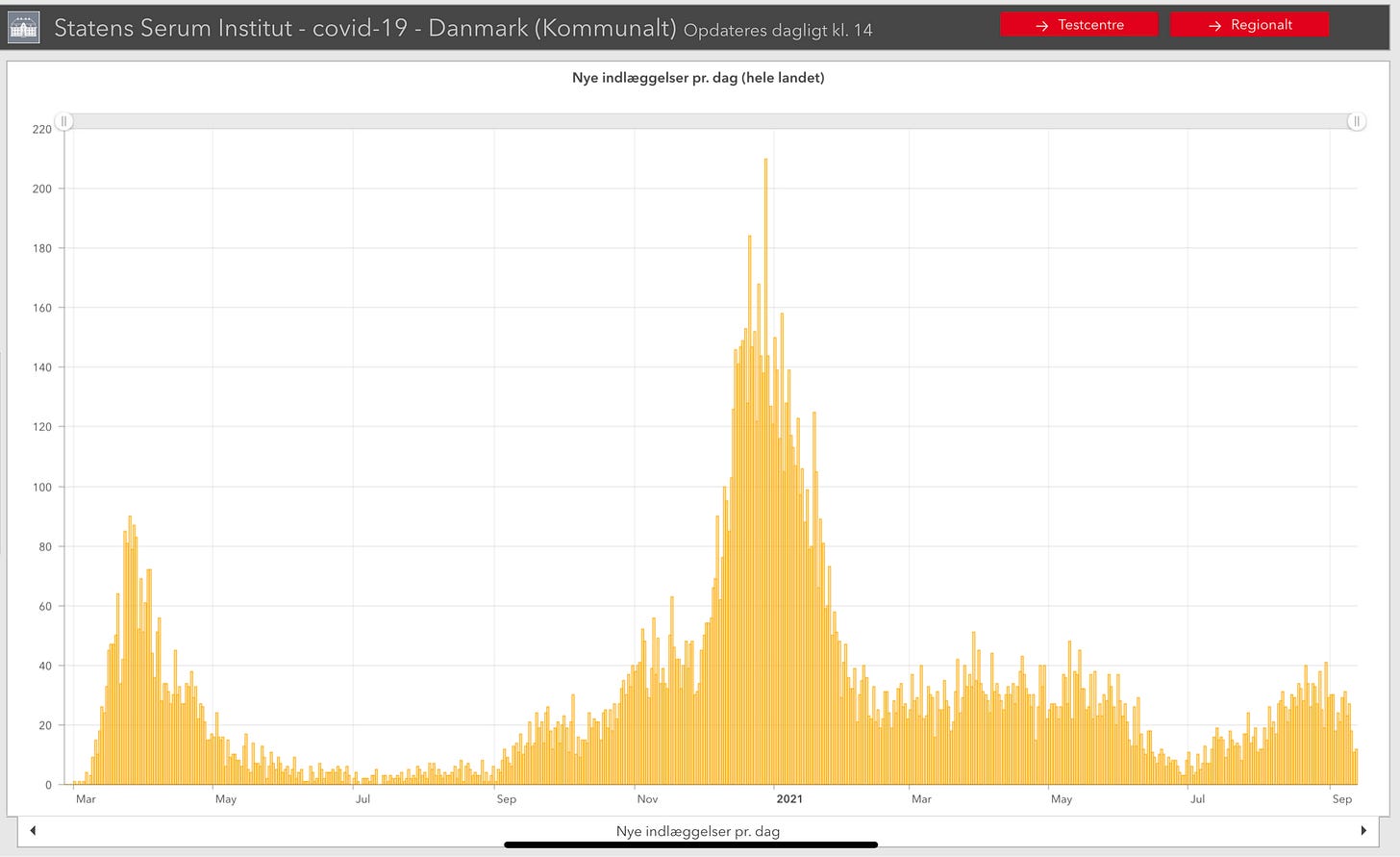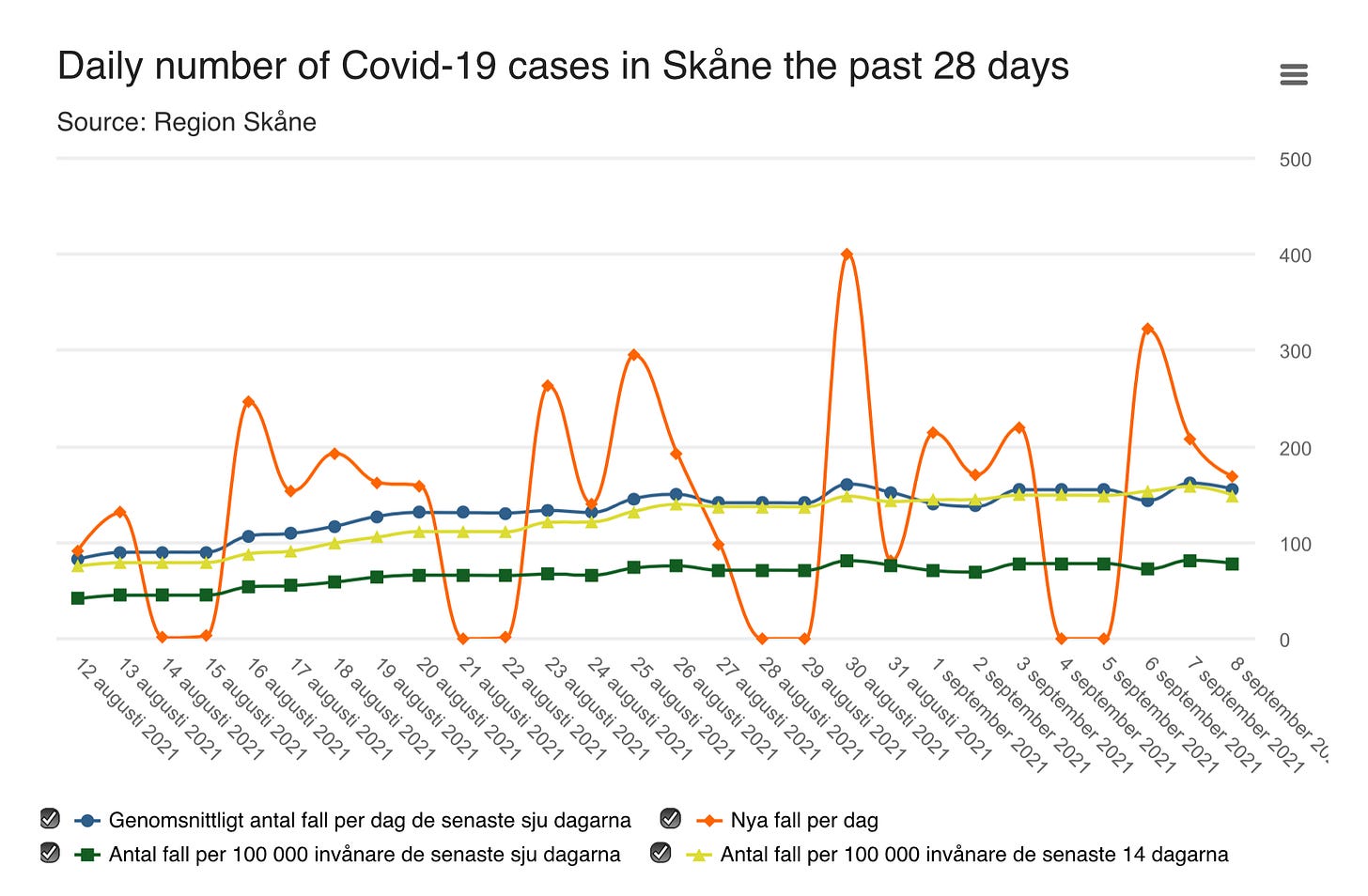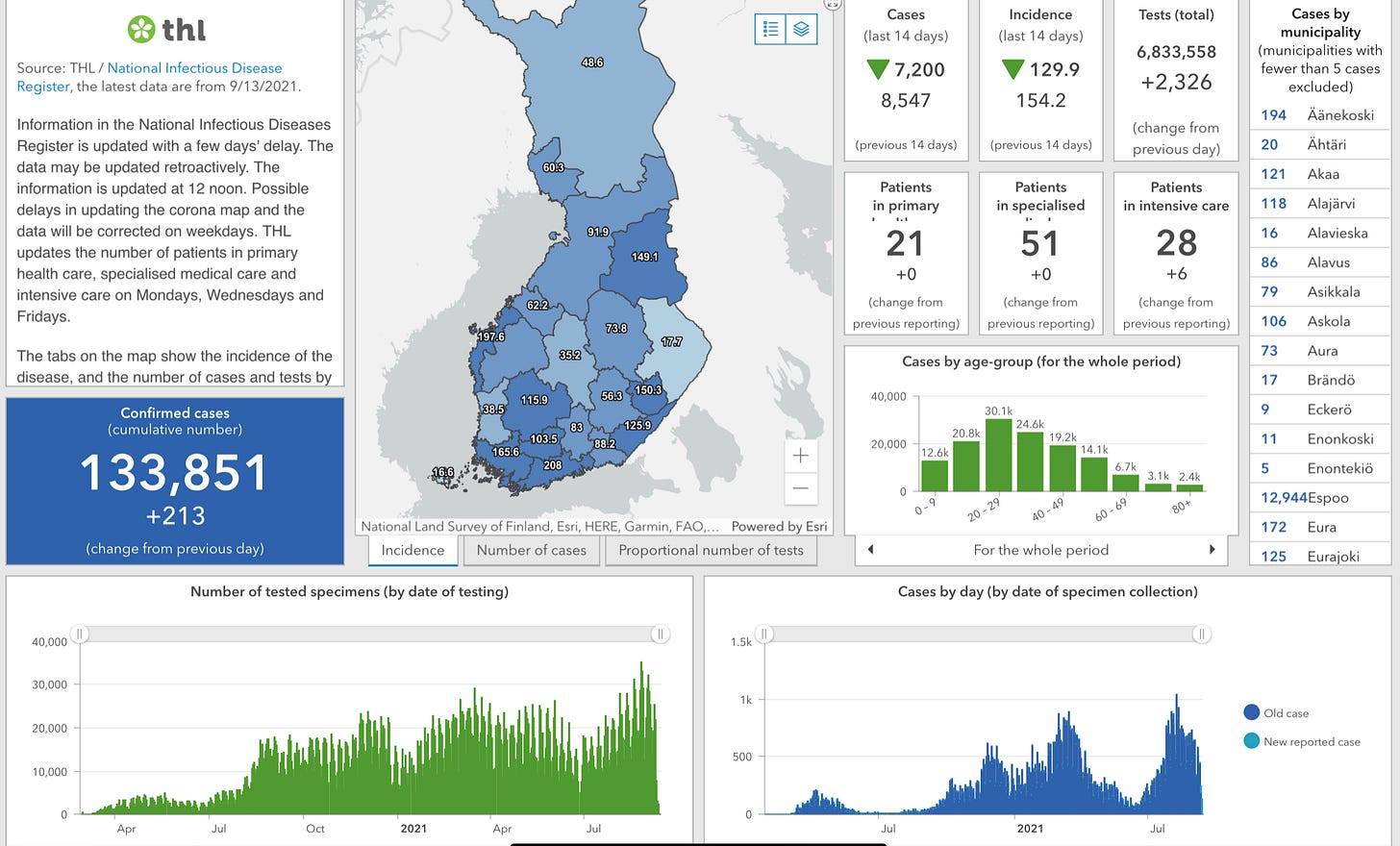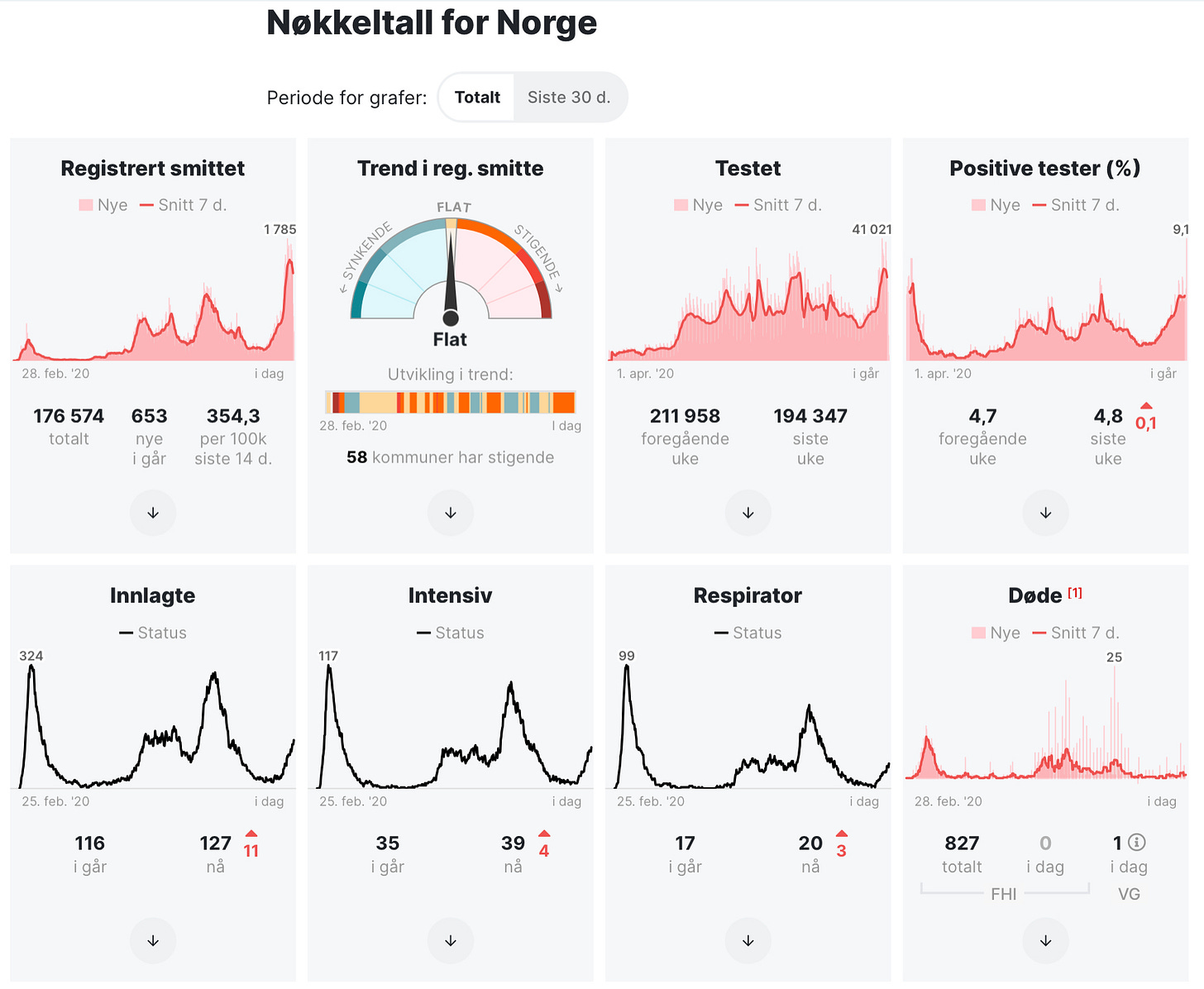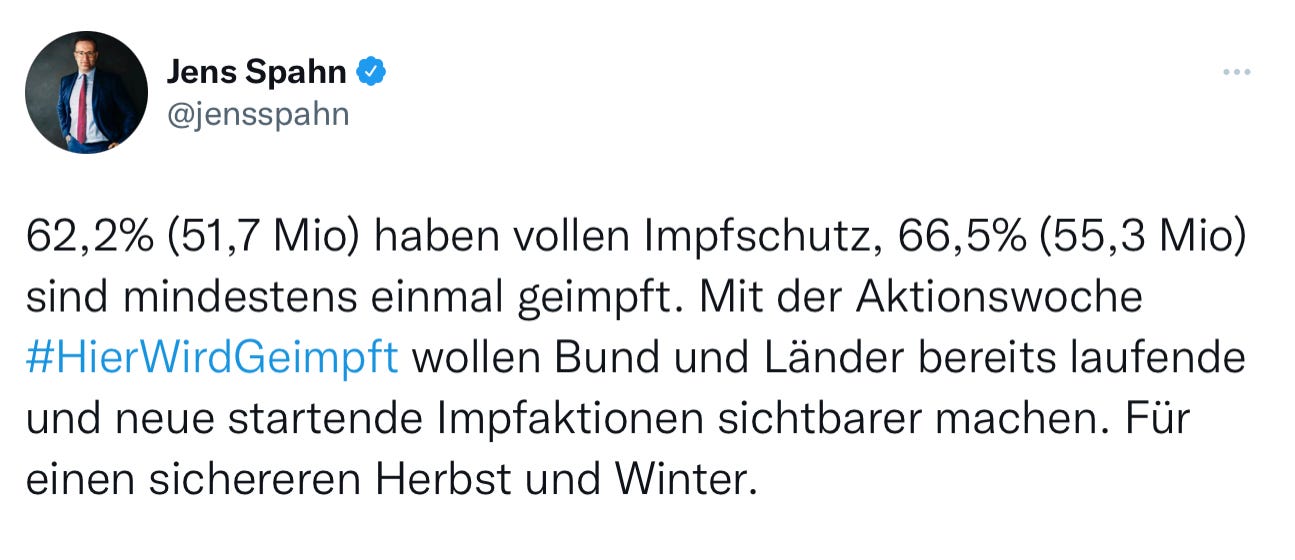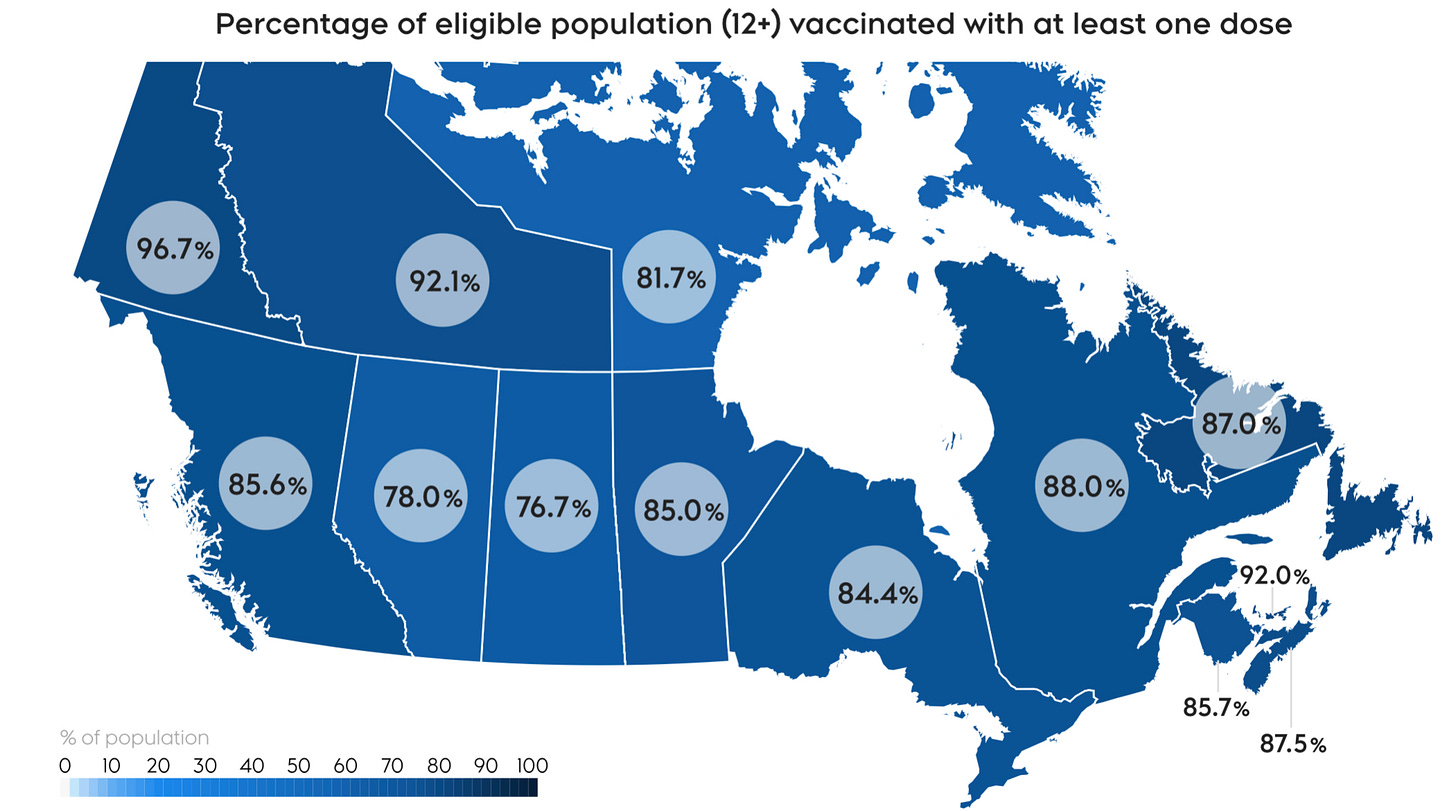The Evening Report - Sept 13
RS virus wave inundates some Danish hospitals
🇩🇰
Some Danish hospitals are awash in RS virus infection cases. Reports from TV2 and the newspaper B.T. paint a concerning picture of what is going on across Denmark. Aarhus University Hospital, one of the largest in Denmark, is seeing so many children with RS virus infections that they are now at capacity and are sending kids to other facilities. The hospital also canceled all scheduled surgeries today and might have to do so again tomorrow.
Chief Physician Klaus Birkelund Johansen spoke to TV2:
“We are full; we have no more beds. All of our systems are in use at the moment.”
The hospital has ten children on respiratory support systems and others are in intensive care. And the hospital is not alone.
Hvidovre Hospital in Metro Copenhagen and H.C. Andersen Børne og Ungehospital in Odense are both reporting they are under increasing pressure due to RS cases. Hvidovre Hospital Chief Physician Helle Christiansen says they are now filling rooms on a daily basis.
This is happening a week removed from the Statum Serum Institut saying it was seeing an “extraordinary” number of RS virus infections in recent weeks. The virus usually shows up in the winter months, usually peaking in February, but is now showing up much sooner and in far higher numbers than has ever been seen before in Denmark.
The virus impacts young children between newborns and those two to three years old the hardest. Parents should keep an eye out for a high fever, difficulty breathing, and whether the child either urinates dramatically less or not at all.
-
On the vaccination front so far, 75.7% of the total population has one vaccine dose and 73.4% have had both doses.
Yesterday there were just 6,282 total inoculations done and of those 1,362 were 1st doses.
-
The first booster shot was administered in Region Nordjylland today. The health authority began its booster shot campaign at a nursing home in Sulsted. The region expects to get a third dose to everyone who wants one in senior care homes “over a few weeks.”
Chief Consultant Anders Cinicola:
“We have worked hard to plan the new vaccination roll-out in collaboration with the North Jutland municipalities and the general practitioners in the region. Now we are getting started, so that we can protect the most vulnerable citizens against COVID.”
While vaccination teams get to each care home, invitations to get a third dose have also been sent out to people with severely impaired immune systems. They will have to get their booster shot at one of the brick and mortar locations.
-
Denmark is reporting 263 COVID infections and three more coronavirus deaths in the last day.
Yesterday there were 53,014 corona tests done, 26,853 PCR and 26,161 rapid, for a (PCR only) positivity percentage of 0.98%.
-
Over the last seven days, new infections have remained concentrated in those under 50 years old. The 10 to 19 year old age group had the most infections of any age group over the last week.
-
The infection situation at the kommune level continues to improve. There are now just 15 kommunes with COVID incidence rates exceeding 100 for every 100,000 residents. Of those, a single Kommune, Herlev, is seeing a COVID incidence rate over 200.
-
COVID hospitalizations (125) are unchanged day to day while the number of infected people in an ICU (30) has edged downward (-2) and of those the number on a ventilator (19) is also unchanged.
-
You will have to pay to reserve a seat on the train again. The DSB did away with charging for seat reservations last year in order to accommodate COVID restrictions and keep people socially distant while traveling. With the COVID restrictions now gone, DSB is returning to normal operations including reinstating the fee to reserve a seat to travel by rail. A seat reservation will set you back 30 kroner.
🇩🇰🇪🇺💉
The Danish Medicines Agency (LMST) says more side effects will be added to the product information for both the AstraZeneca and Johnson & Johnson COVID vaccines. The agency says the European Side Effects Committee (PRAC) had advised adding Guillain-Barré syndrome as a rare possible side effect to AstraZeneca. The syndrome can cause temporary paralysis and difficulty breathing. In September, the European Medicines Agency has assessed several possible cases that may be linked to the vaccine. But it is very rare, impacting fewer than 1 in 10,000 people.
PRAC is also changing the warning about rare instances of severe blood clots in relation to the viral vector vaccines. The wording will remove specific language about “mainly occurring in women under 60” as the difference by age and sex with the side effect is not as pronounced as it once was. In fact, the Danish Medicines Agency says 43% of cases have occurred in men and 37% in vaccinated people older than 60.
As for the Johnson & Johnson vaccine PRAC is recommends the addition of swollen lymph nodes, unusual or decreased sensation in the skin, tinnitus, diarrhea, and vomiting as potential side effects. All are considered to be rare or uncommon side effects.
LMST Director Lars Bo Nielsen says it is important to see these changes in context. COVID vaccines, while new, are inoculating billions of people.
“Therefore, they are subject to the world's greatest surveillance efforts, and one also sees the most rare side effects when so many are vaccinated. The latest update from the European Medicines Agency is precisely about the side effects that are very rare and only affect a few people.”
He credits the system as working to not only approve vaccines that work and are safe, but then transparently monitor and report on vaccine side effects to keep people informed.
🇸🇪
Sweden will update its COVID stats for the first time this week tomorrow.
-
The Swedish Public Health Agency is under growing pressure to open vaccinations up for children 12 to 15 years old. Currently, the youngest age group to have access to vaccines in Sweden are 16-year-olds. Now Radio Sweden is reporting the Swedish Society for Communicable Disease Control also wants to see younger children get inoculated. It says data from all the other countries who have been vaccinating adolescents has shown a positive impact with no safety issues.
The issue have been a contentious one for some parents in Sweden, especially those with kids struggling with long-COVID, who have engaged in vaccine tourism. They research which countries offer vaccine access for those under 16 and then travel there to get their children vaccinated.
-
Sweden’s capital region is adjusting its vaccination strategy to essentially throw everything and the kitchen sink at getting the remaining hold-outs their shots. While Region Stockholm has administered 2.8 million vaccinations, it says there are still areas with lower vaccination coverage. It wants to do everything it can to get those rates up.
The region already has 31 vaccination clinics, four mobile vaccination buses, and operates pop-up sites in health centers, schools, universities, and at some hospitals. They have vaccinated people in mosques, churches, gathering places, and even walkways. This is on top of outreach efforts to get homeless people vaccinated and using information campaigns in multiple languages to get to different ethnic and refugee groups.
Now the region is adding three more vaccination buses. It will also step up vaccination efforts on school and college campuses. And even offer vaccinations to people going in for surgeries or other medical procedures. Another part of the new strategy is to directly combat misinformation.
Vaccine Coordinator Magnus Thyberg:
“We see that some of the people who are holding out ask more questions about the vaccine, about possible side effects, and about things they have heard about, which are sometimes not true. Working actively against myths and misinformation will be an important component in the future. It's good that we're getting questions. We encourage everyone to make their own decision about their vaccination, but we also want such a decision to be based on correct information.”
Region Stockholm will also continue to bolster multi-language social media and digital information campaigns to inform people about why they should get vaccinated. As well, they are reaching out to business groups, well-known community figures, and other influential people to try and utilize their networks to get the vaccine message out.
-
After a story last week where thousands of vaccine doses in Sweden were at risk of being thrown away due to declining demand, the company involved is clarifying the numbers. Doktor, a company helping administer vaccines in Sweden, says 1,500 doses are at risk of hitting their best before date in Malmö and another 15,000 to 16,000 in Stockholm. This is up from 6,000 doses reported last week.
Communications Manager Sara Dannborg says even with the media attention the situation hasn’t changed.
“We had hoped that the publicity last week would lead to an improvement in the booking situation, but that has not happened. It is still a very low demand.”
Time is running out as the doses approach their expiry date and the company looks to close its vaccination sites in both cities.
-
In Southern Sweden just across the bridge from Copenhagen, Region Skåne is seeing its latest infection wave begin to ebb.
-
A Swedish region is making a plea to vaccine holdouts by reaching out to them directly. After seeking a legal opinion, Region Kalmar will now use its own vaccination registers to identify each of the about 30,000 vaccine hold-outs and send them a letter. What the letter will say is something that is still being worked out.
Vaccine Coordinator Marie Ragnarsson spoke with SVT:
“The communications department is working on that right now. We think that it may be information about how to get vaccinated.”
The region is also debating how exactly to approach these people, whether to offer them times to book a vaccination appointment or simply encourage them to drop-in at a vaccination site.
🇫🇮
Finland has registered 213 new infections since yesterday’s update.
Fatality and hospitalizations numbers are updated on Wednesdays.
To date, 4,080,651 1st doses (72.9% of the total population) have been administered and 3,146,763 people (56.4%) are fully vaccinated.
🇳🇴
Norway has added 694 infections and had no new corona deaths in the last day.
COVID hospitalizations (127) have jumped (+11) ICU numbers (39) have also increased (+4) and of those the number on a ventilator (20) crept up as well (+3).
So far, 73.71% of Norwegians have had one vaccine dose and 64.21% have had both.
-
Norway is holding its national elections today while being hit with its worst infection wave of the entire pandemic. The COVID situation has prompted some rather unique changes to accommodate for the ongoing pandemic situation. Special ballot boxes have been set up for people who are quarantined due to COVID infections to ensure they can cast a ballot. According to Norwegian News Agency NTB if that doesn’t suffice, people in isolation at home can also call a number and an election official would swing by their home and pick up the ballot.
Update - Prime Minister Erna Solberg and her Conservatives conceded defeat late Tuesday night as election results were counted.
🇩🇪
A week-long nationwide vaccination campaign begins today in Germany. Health Minister Jens Spahn, who has been warning inoculation rates are far too low, says the numbers must increase “for a safe autumn and winter.” On top of all the usual places one can get vaccinated in Germany, this week will see pop-up vaccination opportunities in mosques, libraries, shopping centers, and even train stations.
The health minister, German Prime Minister Angela Merkel, and top health officials have all been warning that current vaccination coverage is too low. They are concerned if the numbers don’t rise dramatically, then it will leave the country vulnerable to a potentially disastrous infection wave in the cold fall and winter months.
To date, 51.7 million people in Germany have had one vaccine dose (62.2%) while 55.3 million people (66.5%) are fully vaccinated.
🇪🇺✈️
When the pandemic ends and Europe returns to a somewhat normal life, don’t expect to jet around the EU on the cheap. The top manager at budget airline, Ryanair, says with struggling airlines who have taken a financial bath due to COVID, fewer flights, inflation, and higher taxes will all translate to much more expensive travel.
Michael O’Leary spoke to The Sunday Times:
“I expect holiday tourism within Europe's borders to make a big comeback next year. And prices are getting much higher because there is a significantly lower capacity.”
A lot of European airlines have had to significantly cut back on staff, planes in the air, and routes to service due to the pandemic. All that financial strife and a lack of capacity will mean significant airfare increases next year, according to O’Leary.
🇬🇧
Another change of gears on the COVID front in the United Kingdom. After pulling a U-turn on the promised use of vaccine passports and then scrapping the idea, today the chief medical officers of England, Scotland, Wales, and Northern Ireland have recommended vaccinating children aged 12 to 15 years old. The Associated Press is reporting that will be part of a vaccination “tool kit” to be announced by Prime Minister Boris Johnson on Tuesday.
Earlier this month, the UK’s Joint Committee on Vaccination and Immunization said it did not support vaccinating healthy young children because the direct health benefits were marginal. It did support a vaccinating children 12 to 15 years old who have underlying health conditions.
🇨🇦
Public Health Canada has still not updated its COVID dashboard. Hopefully it will do so later today for the first time since Friday.
-
On the vaccination front so far, 28,323,515 1st doses (74.39% of the total population) have been administered, while 26,041,099 people (68.40%) are now fully vaccinated.
In Ontario today there were 600 new infections, of which 475 were people who were either not vaccinated or had just a single dose. Due to a technical error hospitalizations aren’t available, but the number of people in an ICU is, 189. In Ontario, 84.4% of the population has one dose and 78.1% are fully vaccinated.
Quebec is reporting 639 new COVID cases and one more death. There are 227 people in hospital (+14).
In Atlantic Canada, New Brunswick has logged 122 new infections over the last three days. Nova Scotia has 73. Newfoundland and Labrador nine.
Manitoba saw 171 COVID cases and two more deaths since Friday.
Saskatchewan registered its highest ever number of daily COVID infections today with 449. Three weeks ago, the province was averaging just 157 cases per day.
While Alberta hasn’t reported infection numbers yet, Alberta Health Services is reporting concerning hospitalization numbers. The provincial health authority says there are 202 people in intensive care. That is the highest number of ICU patients in Alberta since the pandemic began. AHS adds hospital capacity is at 90%, which includes surge beds put in place to deal with the epidemic.
B.C. will report for the first time since Friday, a little later today.


